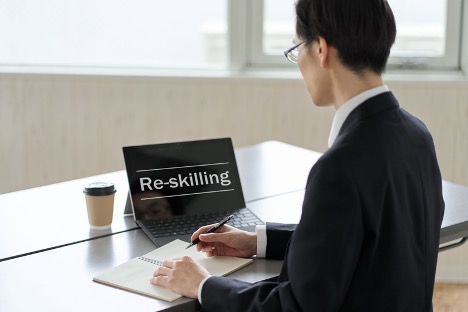It is our responsibility as futurists at COMS360, a PR 360 firm specializing in business and technology, to look forward and counsel businesses on how to get ready for a world that is rapidly changing.
While every situation is unique, it is our work to state to our prospective clients who come to us with specific problems or goals tailored with a mindful approach. There might be a handful of scenarios that are the most common concerns in every business sector but these ones for every company should be ready for in 2023:
- Economic uncertainty

The global economy is always subject to changes that can cause unexpected financial challenges. These could include inflation, recessions, and geopolitical turmoil that were likely to continue in 2023 and succeeding years.
According to the World Economic Outlook Report in 2022 of the International Monetary Fund (IMF), “Global growth is forecast to slow from 6.0 percent in 2021 to 3.2 percent in 2022 and 2.7 percent in 2023. This is the weakest growth profile since 2001 except for the global financial crisis and the acute phase of the COVID-19 pandemic.”
Businesses can combat inflation by establishing end-to-end, actionable visibility of expenditure by business process, function, cost category, and business unit, as well as by cutting spending.
- Supply chain disruptions

Security in the supply chain is yet another crucial problem. Disruptions to global supply chains due to the COVID-19 pandemic, natural disasters, and political instability are expected to continue; companies will need to develop more resilient supply chains to mitigate these risks.
Backlogs caused by COVID presented difficulties that were exacerbated by Russia’s invasion of Ukraine and manpower shortages brought on by the Great Recession. This has increased prices and made it more difficult to find products and parts (e.g., energy, grains, computer chips, oil, and so on).
A survey by Accenture estimates that by 2023, problems with the supply chain could cost the Eurozone’s gross domestic product (GDP) a total of €920 billion. Through this, businesses should concentrate on long-term recuperation and reorganize their demands to stop future shortages of this kind.
- Customer expectations seemingly increased

Consumers are increasingly demanding personalized experiences, fast delivery times, and seamless online interactions. Companies need to prioritize the customer experience to remain competitive.
In clothing stores, for instance, visitors don’t simply want to buy things; they also want to have enjoyable in-store experiences. If your business has physical locations, you might want to provide more immersive experiences. On the contrary, online stores should think about including augmented reality (AR) experiences like virtual changing rooms that let shoppers experiment with clothes, accessories, and makeup without leaving their homes.
- Digital revolution

In 2019, when artificial intelligence (AI) speeds up more companies’ operations; other technologies like 5G, blockchain, the cloud, and the Internet of Things (IoT) are also advancing.
In a world of ever-quicker technical advancements, every company needs to view itself as a tech company and work alongside skilled and clever technologies, even PR agencies, to redesign their processes and make sure their company has trustworthy tech.
- Talent acquisition and retention

With unemployment rates at historic lows, finding and keeping skilled workers will continue to be a major challenge for companies.
The “Battle for Talent” doesn’t just begin in an HR round-table interview but all throughout his journey as an employee. Speaking of employees, businesses in 2023 must be prepared to handle a persistent talent shock, where businesses across all industries are struggling with significant skill gaps for the future.
And to prepare for the fourth industrial revolution, they will need to reskill or upskill significant portions of their workforce. Businesses may and should shoulder the responsibility of developing talent by implementing strategies that include hiring people right out of college without first-hand experience.
- Cybersecurity threats

As more businesses move online and store sensitive data, cybersecurity threats will continue to be a major concern. Companies need to implement robust security measures to protect against hacks, data breaches, and other cyberattacks.
According to Check Point Research’s latest research on cyberattack patterns, 38% more global attacks occurred in 2022 than there were in 2021. The rise in cyberattacks is attributed to more skilled hackers and ransomware groups that concentrated on targeting remote workers’ collaboration tools, schools, and educational institutions that switched to e-learning during the pandemic, as well as a significant rise in attacks on healthcare organizations.
Since more businesses have gone digital, companies should take proactive measures to protect themselves by assessing their data backup and recovery procedures, doing penetration tests and vulnerability scans, and taking measures to secure sensitive data and thwart cyberattacks.
- Climate change and sustainability

With increasing public awareness of climate change and environmental issues, businesses are facing pressure to become more sustainable. This includes reducing carbon footprints, increasing energy efficiency, and reducing waste.
Now businesses are obliged to take a comprehensive look at their business operations and conduct a detailed supply chain audit to become more sustainable all while meeting consumers’ needs.
- Innovation and regulatory compliance

It is hard to keep up with changing consumer preferences, and it is even more complex to comply with regulations. However, companies need to stay on top of changing regulations to avoid penalties and reputational damage.
For innovation, companies that fail to innovate risk losing market share to competitors. Investing in research and development and embracing new technologies will also be crucial for businesses looking to stay ahead of the curve.
So by all means, if you want to get ahead of your competitors, you just landed on the right page. We can assist.
Changes in your organization are inevitable, and COMS360 has made it possible to adopt change and communicate your demands in relation to global development and corporate social responsibility (CSR) issues. Along with this PR expertise, we make sure that your message will penetrate cultural barriers, which implies using a variety of methods and channels.
